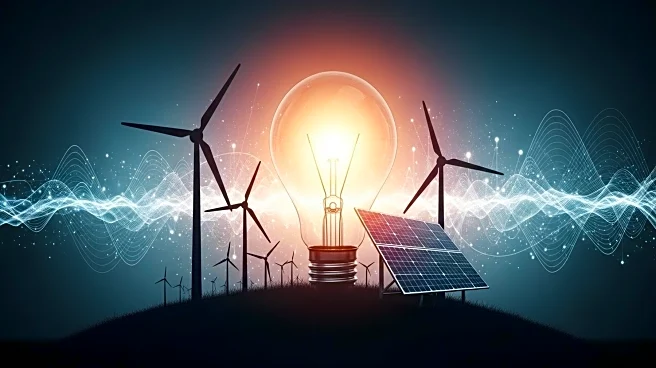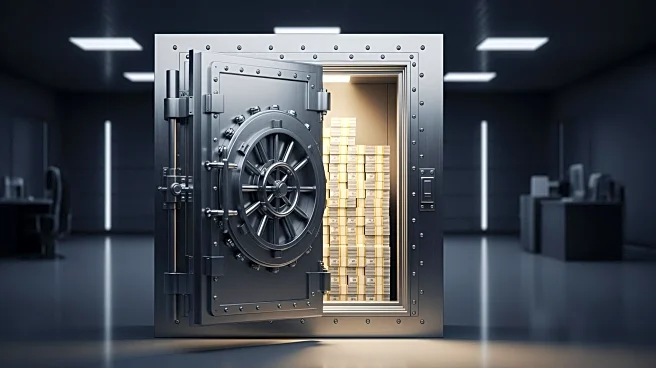What is the story about?
What's Happening?
The American energy sector is undergoing a significant transformation, driven by the increasing demand for electricity due to advancements in artificial intelligence and digital infrastructure. Data centers, electric vehicles, robotics, and electrified industries are projected to account for nearly half of all new electricity demand in the U.S. by 2030. To address this surge, experts argue that the nation needs a diverse and secure energy mix, including fossil fuels, solar, wind, advanced nuclear, hydrogen, and storage solutions. This approach is seen as essential for maintaining economic and national strength, as well as for leading the global economy powered by AI.
Why It's Important?
The shift towards a diverse energy mix is crucial for ensuring energy independence and security. By investing in clean energy technologies, the U.S. can reduce its reliance on foreign-controlled components, particularly those dominated by China, which currently controls over 70% of global production capacity for solar panels and batteries. This strategic move not only addresses vulnerabilities but also positions the U.S. as a leader in exporting next-generation energy technologies. Furthermore, clean energy is economically advantageous, creating millions of jobs and offering cost-competitive solutions that enhance grid security.
What's Next?
To secure the future of energy independence, the U.S. must focus on reshoring manufacturing of clean technologies, strengthening domestic mining and refining, and building alliances to diversify global supply chains. Additionally, modernizing the grid to be cyber-resilient and high-capacity is essential. This includes speeding up permitting processes while ensuring safety and property protection, and supporting innovation across energy technologies. These steps are vital for the U.S. to lead the intelligent age, similar to its leadership during the industrial era.
Beyond the Headlines
The transition to a diverse energy mix has broader implications beyond climate change. It impacts job creation, national security, and sovereignty. By investing in infrastructure and innovation, the U.S. can maintain its leadership in the global economy, ensuring that clean energy dominance is not just about environmental benefits but also about economic and strategic advantages.
















